We are happy to share some comments we have received from those involved in the junior youth spiritual empowerment program in the rural areas of India
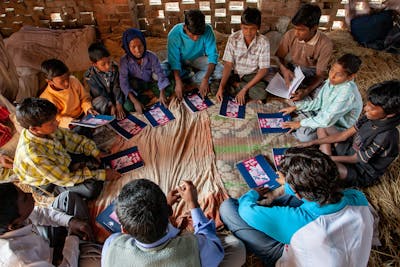
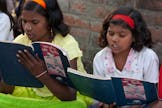
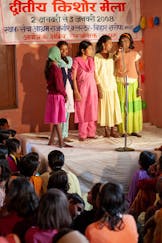
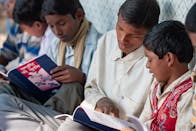
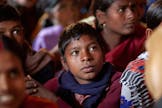
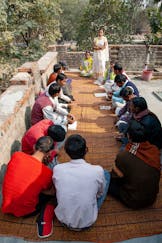

We are happy to share some comments we have received from those involved in the junior youth spiritual empowerment program in the rural areas of India
The worst thing in the village is caste prejudice. People fight because of caste. It seems to me that we need to change this caste prejudice very urgently. We should live together in unity. Here there is fighting for this reason.
. . . For example, if someone is of a higher caste and you are of a lower caste, the higher caste people will not let you set foot in their house. But I don’t think this way. I think they have come to my home, so they should sit with me, pray with me. As we read in the [junior youth] books, we should live in unity so that all prejudices will come to an end.
Mainly I have learned that in our lives we need to make a choice about how we can serve—how we can become good. We need to seek out our talents. And I think I will become a teacher. I will teach children these things. I am trying to do this and am now teaching in my mother’s school.
. . . I learned from the books that we have to continually make an effort. If we are trying to do something and we are struggling, we should not drop it and go straight home. We should complete the task, and only then come back. Like in the story of the frogs—we should do things in that way. The first frog fell in and didn’t try. The second tried to churn his cream and butter resulted. In this way, we should also make an effort. . . . I try to apply this in my studies—I continuously make an effort and keep progressing.
I just played. I didn’t do any work in the home and didn’t listen to my mother and father’s counsels. I also didn’t like and didn’t pay attention in my studies. When I joined this class and saw Musonda and Rose’s experience and how they study and how they live with their mother and father, my heart was attracted. At that time I gained the insight that before studying we have to choose a goal for what we want to become after studying.
In my village many people are religious fundamentalists and many people are always ready to fight. They keep fighting over small things. One thinks that if there is a little bit of land and he takes it over, this land is his. . . . I also had some land and it was taken over. My dad filed the case, then we dropped it because the man was a criminal and a bully, and we were helpless. There was a panchayat [village council] meeting called in the village. In the meeting many people said, “You are helpless. End the case.” So the case ended, then it was fine. We didn’t do anything. I was content and left it with God. However one’s actions are, so will be the fruit. . . .
After seeing this I thought, “What if it weren’t this way? What if unity and love were to come about and these thoughts of service were to come about?” I think about working for all this in the village. To do this, we will have to progress, so why don’t I help the village to progress and bring about these changes? Hence I am working towards this.
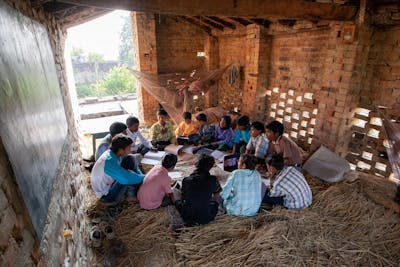
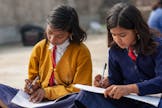
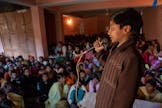
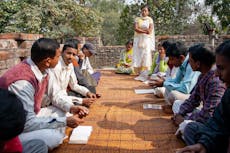
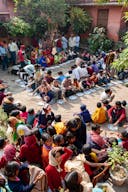
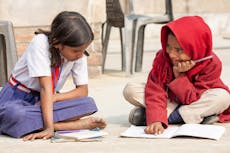
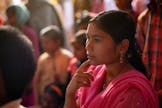
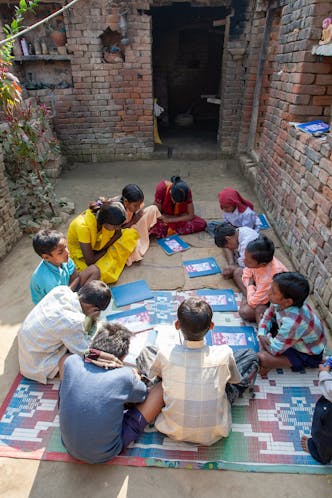
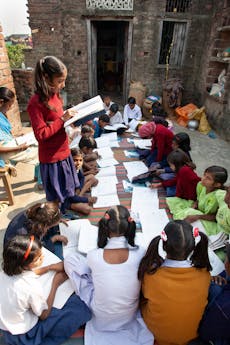
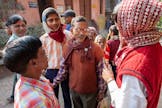
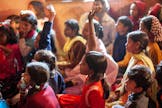
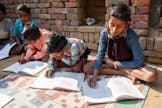
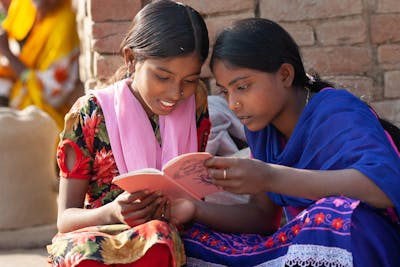
. . . after studying I need to help the development of the village. I want to do something so that the village can develop somewhat and so that I can also provide for my family. So now I am studying, and in this regard I think I will educate the younger children, and with what little money I get from that I will help my household and also pay for my own expenses. I teach children and do my own studies.
In Breezes of Confirmation, Chishimba’s father lost his job, and I thought of his example as well as of Godwin’s. I tried to think of a kind of work which I can do that no one else can. So I found work in a printing press and work there around 8 hours per day and earn enough to pay for my studies. I went and spoke to a man in my village and explained my problem and he gave me work. Now I wake up at 3 am, study for an hour and a half, then make my breakfast and eat. At 6 am I go to tuitions and I am there until 11 am. Then after eating, I go to work at 11:30.
Here, children study up until the 7th class, and after that they don’t go anywhere to continue their studies. Some children even drop out in the middle. I started offering tutorial classes for some children at home. One of the girls in the class was very successful. After taking her exam here, she got admitted into the school in the village next door and travels there and back daily. Whatever happens, she keeps coming here and I assist her.
I wanted to be an animator because of the way the animator in my previous group would explain things, and how I have learned. It is the responsibility of every person to share whatever they learn with others—that is best. Just as the flower which, when it blooms, spreads its fragrance everywhere and everyone says, “Oh what a nice flower, what a beautiful fragrance!” We should also be the same way—we should reach out.
Before, my family used to say that girls should not go out. But now they say, “No. Daughters and sons are equal. She will go out, and she will study and learn.”